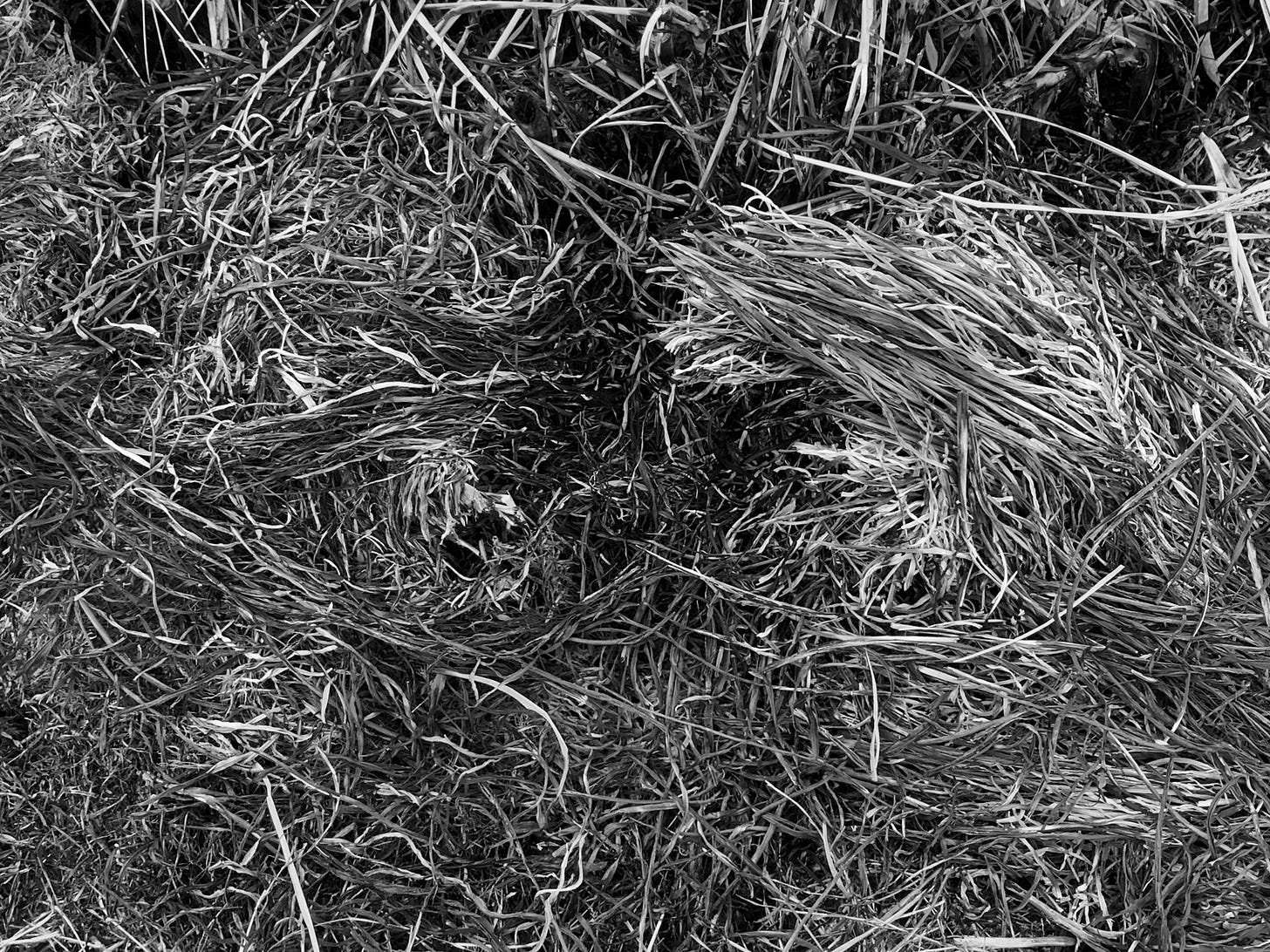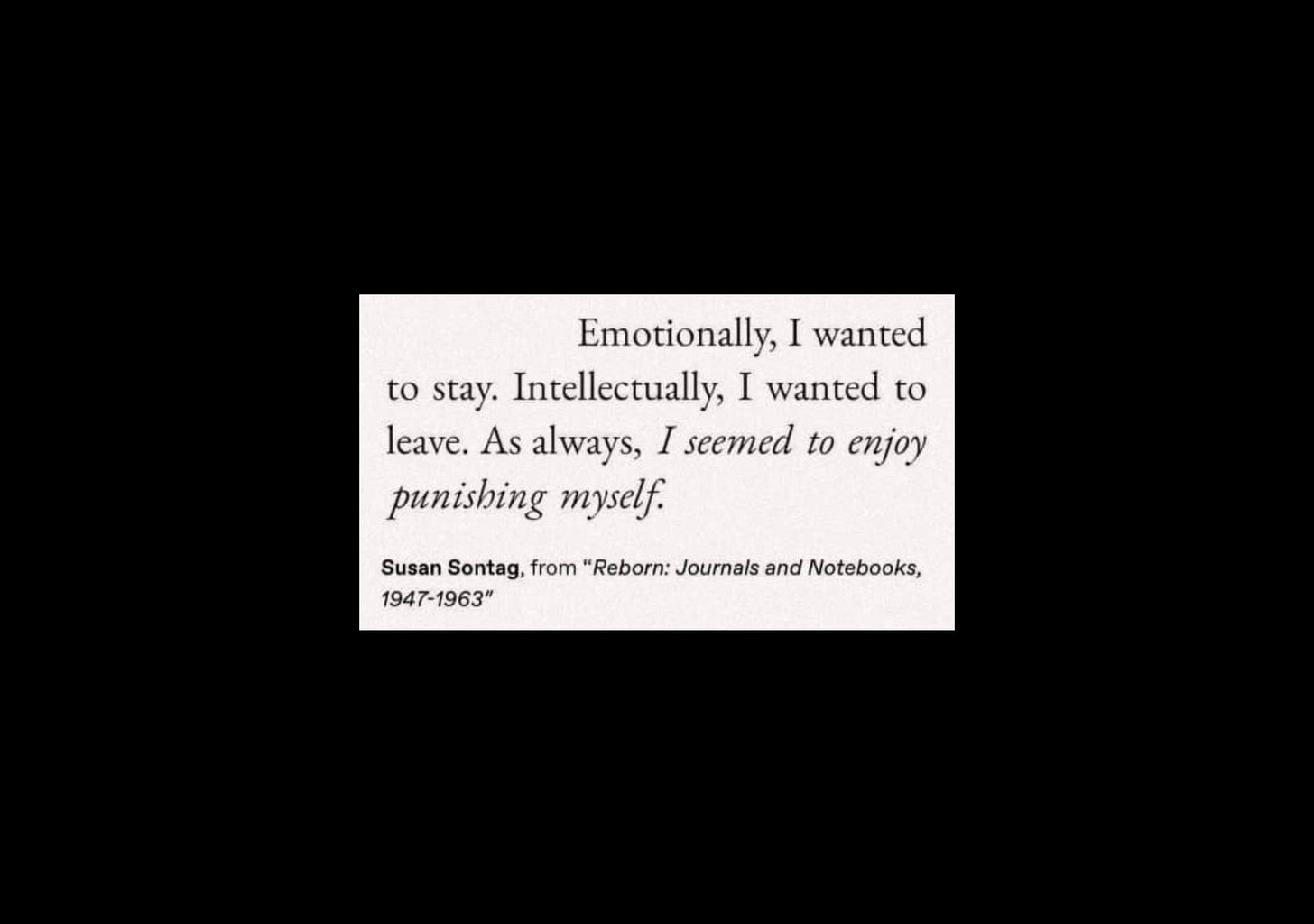burning rain ; pembakaran hujan
Addressing the need for speed; on the stationary process of nomadic desire.
Miss X claims that she no longer has a brain or nerves or chest or stomach or guts. All she has left is the skin and bones of a disorganized body. These are her own words.”1
I am back by the rice fields in Jogja, hiding from the world in my little wooden house with the cats, which seem to have multiplied in number since my last visit. Dry season in Jogja has a wildness to it that I like, the field now is a matted tangle of yellow and green. Every time I look out from my porch, idly smoking a cigarette, something violent and wayward within me is soothed, slowly dissipating into the vastness of the field. Yellow and green form the palette of Jawa for me, more subtle compared to the chaotic kaleidoscope of Thailand, my imminent port of call in 2023 where I sought my peace in a technicolour labyrinth of glittering buddhas, illicit substances, gilded temples and crowded night markets.
All day, undisturbed, clusters of banana trees in the “sawah” field sway sleepily amidst the bristling array of rice stalks, like giant fans cooling the landscape. My ears, often accustomed to city noise, find easy respite in the quiet of my surroundings, only interrupted at times by the oscillating hums of motorbikes that jet-line like shooting stars into the dead of night. At my favourite hour of dark, there is only the chirping of crickets, punctuated only by the occasional yet comforting call of the Tokay Gecko, a familiar mainstay in Southeast Asia.
For a long time I have been entranced by the burning. It is not uncommon here to burn trash on the street. I never get tired of catching a sudden burst of orange by the roadside as I whizz past on the back of a motorbike. I once saw a fire eater (not too long ago), try to eat a flame that I was not confident he could swallow; but I respected that he was game enough to try. Every day, the farmers set fire to the leftover straw and stubble after harvesting their rice crops. I like to watch the smoking stacks of blackened hay and the plumes of smoke curling up into the sky, blinking away tears brought about by my own cigarette smoke. Here, in Indonesia I can cry often.
The practice of burning rice straw is often referred to as "pembakaran jerami padi" or simply "pembakaran jerami." "Jerami padi" translates to "rice straw" in English, and "pembakaran" means "burning." Therefore, "pembakaran jerami padi" directly translates to "rice straw burning”. The burnt hay leaves dense patches of black on the sides of the dirt path that I walk ever so often through the field, I wonder how long it would take for the rain to dissolve the ashes back into the soil, burning can never occur without leaving a trace.
As I sit in this tranquil dryness, I cannot help but miss the night rain in Solo at Plesungan, where the air, first ripe and pregnant with humidity gives way to a balmy wetness as the rain comes, not torrentially but lightly, like a blessing. Exclamations of “Hujan! Hujan!”, perhaps in delight or gentle surprise is how I am now remembering the word for “rain”, even though it had already been imprinted in my memory from a book of poetry gifted to me awhile back, “Hujan Bulan Juni”, “Rain in June”. It is only May.
I wonder if mas Sapardi Djoko Damano titled his book as such because rain in Indonesia during the month of June is a rare phenomenon, given that the dry season typically peaks around that time of year. Yet, his poem, "Hujan Bulan Juni", the book's namesake, depicts rain in June as steadfast ”lebih tabah”, which I associate with consistency. How can rain be steadfast if it seldom arrives? I can only make my own assumptions as to why the poet saw fit to title his book of love poems after the rain in June. Perhaps because of its scarcity during the dry season, when rain does finally fall in the month of June, it comes with a certain degree of tenacity.
tak ada yang lebih tabah
dari hujan bulan juni
dirahasiakannya rintik rindunya
kepada pohon berbunga itutak ada yang lebih bijak
dari hujan bulan juni
dihapusnya jejak-jejak kakinya
yang ragu-ragu di jalan itutak ada yang lebin arif
dari hujan bulan juni
dibiarkannya yang tak terucapkan
diserap akar pohon bunga itu(1989)
My translation:
nothing is more steadfast
than the rain in June
which keeps his longing a secret
from the flowering treenothing is wiser than
the rain in June
which erases the footprints
of he who stands hesitant on the roadnothing is more wise than
the rain in June
which absorbs what is unspoken
through the roots of the flower treeAttempted: 17 May, 2024
Desire is atomic, it holds an intensive velocity — a clandestine process that traverses, propagates, and disseminates through relational streams from one vector to another. Rain (the charge carrier) thus becomes both the conductor and enigma of implicit and suppressed yearning, facilitating and circulating the flow of want, turning it nomadic and combustive. It embodies steadfastness, with the “(atoms)” of desire vibrating “in the manner of a vortex, with the possibility of springing up at any point2”, latent within both the seeker and the beloved. The flower tree will bloom, cherished by yearning.
The nomad has a territory; he follows customary paths; he goes from one point to another; he is not ignorant of points (water points, dwelling points, assembly points, etc.). But the question is what in nomad life is a principle and what is only a consequence.3
I am a person who likes to “kembali” return, but in order for me to do that, I also have to “pergi” leave. For three to six months out of a year, I do something I call freewheeling, where I go somewhere without too much of a plan; so as not to remain sedentary in mind and body. I like to stay in spaces for extended periods of time, sites of my choosing. We may not be able to choose where we are born but we have a choice in where we choose to situate ourselves. A space, a physical area devoid of personal significance or emotional connection becomes a place when an individual attributes meaning to that space through the residue of experiences, memories, and interactions. Over time if you keep returning, space transforms into place. Nomadic desire propels me to spaces that can become places to me and to strangers who become loved ones. Returning is a principle, but leaving is a consequence.
Allowing borderless desire to chart my course, is to move by a compass spinning in disarray. Yet it unfailingly steers me to the right places and often at the right time. Within the smooth expanse of nomos, I can distribute myself, dissociate into space, leave my cigarettes half smoked, coffees half drank and thoughts half baked. Each step launches me into a mad dance upon my own axis, retracing tenfold in every direction.
The nomad distributes himself in a smooth space; he occupies, inhabits, holds that space; that is his territorial principle.4
Why I keep returning to Jogja, to Bantul, to this one specific place is so I can get an unfettered view of a particular rice field. It has become a cinematic site for me, something I can “menonton” watch and “menonton ulang” rewatch and discover over and over again. It’s funny because Indonesia is a country full of plots of land where people grow rice, even in urban areas. I could stay or be anywhere, yet this is where I choose to return.
… the nomad is on the contrary he who does not move … the nomad is one who does not depart, does not want to depart5
What I like about this field is its absolute polyvocality, many masjids encircle the field and as evening comes, the air reverberates with calls of prayer in all directions, building up to a dissonant and escalating chorus. I wonder if God can hear through all the noise (although I am pretty sure that in Jogja, God is definitely a fan of noise music) or does she, not unlike the the flower tree just absorb what is unspoken and returns it back to the people as rain.
Deleuze, Gilles, and Felix Guattari. 2013. A Thousand Plateaus. Bloomsbury Revelations. London, England: Bloomsbury Academic. p.498
Deleuze, Gilles, and Felix Guattari. 2013. A Thousand Plateaus. Bloomsbury Revelations. London, England: Bloomsbury Academic. p.1148
Deleuze, Gilles, and Felix Guattari. 2013. A Thousand Plateaus. Bloomsbury Revelations. London, England: Bloomsbury Academic. p.1144
Deleuze, Gilles, and Felix Guattari. 2013. A Thousand Plateaus. Bloomsbury Revelations. London, England: Bloomsbury Academic. p.1146
Deleuze, Gilles, and Felix Guattari. 2013. A Thousand Plateaus. Bloomsbury Revelations. London, England: Bloomsbury Academic. p.1147








